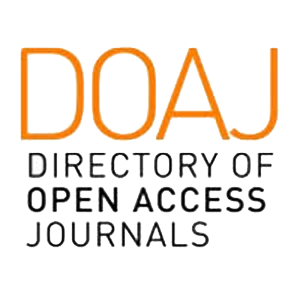La Limitación Estadística y Analítica en la investigación de la Deuda Pública de México
Abstract
The contribution of the present research paper is to indicate the main obstacles that scholars of public debt in Mexico confront. The analysis of the available statistical data of public debt allows us to conclude that such data is insufficient, biased, opaque, dated and irrelevant. Moreover, a detailed mathematical analysis of a representative model of economic growth incorporating public debt is done with the purpose of showing the analytical problems that affect these models when incorporating the relationship between public debt and economic growth.
Downloads
References
Alvarez Texocotitla, M., Alvarez Hernández, S. y Alvarez Hernández, M. D. “Una Reformulación del Modelo Neoclásico de Crecimiento Económico”. Denarius, México, 2017, pp. 5-47.
Alvarez Texocotitla, M. y Alvarez Hernández, M. D. (2015). “Una Revisión Crítica a los Modelos Básicos de Crecimiento Económico”. Denarius, México, 2015, pp. 191-252.
Barro, R. J. y Sala-i-Martin, X. Crecimiento económico. Editorial Reverté, España, 2009, p. 654.
Cecchetti, S., Mohanty, M S. y Zampolli, F. The Real Effects of Debt. Bank for International Settelments Working Papers, Washington, 2011.
Greiner, A. y Fincke, B. Public Debt, Sustainability and Economic Growth. Springer, Switzerland, 2015, p. 195.
Herndon T., Ash, M. y Pollin R. “Does high public debt consistently stifle economic growth? A critique of Reinhart and Rogoff”. Cambridge Journal of Economics, Cambridge, 2013. Advance Access published in December 24, 2013.
Hirsch, M. W., Smale, S. y Devaney, R. L. Differential Equations, Dynamical Systems, and an Introduction to Chaos. Academic Press, UK, 2013, p. 358.
Hurtado, C. y Zamarripa, G. “Deuda subnacional: un análisis del caso mexicano”. Fundación de estudios financieros-FUNDEF, A.C., México, 2014.
Secretaría de Hacienda y Crédito Público. “Sostenibilidad de la Deuda Pública del Sector Público Federal”. Informe del Resultado de la Fiscalización Superior de la Cuenta Pública (Estudio No. 15-0- 06100-13-1583.1583-GB). México, 2015.
McKinsey Global Institute. Debt and (not much) deleveraging. McKinsey & Company, USA, 2015.
Pedregal, P. Introduction to Optimization. Springer-Verlag, USA, 2004, p. 245.
Pescatori, A., Sandri, D. y Simon J. “Debt and Growth: Is There a Magic Threshold?” IMF Working Paper, Research Department, Washington, 2014.
Reinhart, C. M. y Rogoff, K. S. Esta vez es distinto: ocho siglos de necedad financiera. Fondo de Cultura Económica, México, 2011a.
Reinhart, C. M. y Rogoff, K. S. “A Decade of Debt”. NBER Working Paper, No. 16827, Washington, 2011b.
Turner, Adair. Between debt and the devil. Princeton University Press, Oxford, 2016, p. 302.














